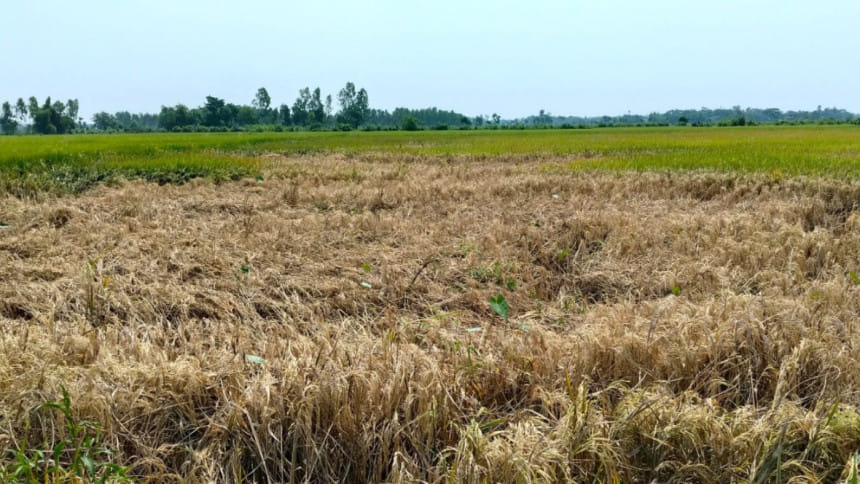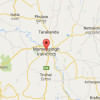Netrokona rice farmers concerned about brown plant hopper infestation

Boro rice fields in several areas of Kalmakanda upazila in Netrokona have been infested by brown plant hoppers, locally known as "current poka", raising serious concerns among farmers over harvesting their ripened crops.
To limit losses, many farmers have started harvesting their paddy before it fully ripens, while others are applying pesticides as advised by the Department of Agricultural Extension.
During visits to various areas of Nazirpur and Lengura unions today, half-ripe Boro paddy fields were seen swaying in the breeze, their stalks bent under the weight of the grain. In some patches, the plants had already withered. Several farmers were seen spraying pesticides.
According to the Kalmakanda Upazila Agriculture Office, Boro rice has been cultivated on 21,065 hectares of land this year, 4,630 hectares in haor (wetland) areas and 16,435 hectares in non-haor areas.
So far, 85 percent of the haor fields and 30 percent of the non-haor fields have been harvested.
Abdul Hakim, a farmer from Nazirpur, said he grew Boro rice on six acres of land this year. Brown plant hoppers attacked two acres before the paddy fully ripened, forcing him to begin harvesting early.
He is now applying pesticides to the greener, less mature areas of his field.
Asked about the situation, Saiful Islam, upazila agriculture officer, said the pest generally targets fields with poor light and air circulation.
"At an early stage, the brown plant hopper can be controlled by spraying insecticides," he mentioned.
Only a small portion of fields in the upazila have been affected so far, he added.
The agriculture office is continuing to guide farmers, and 45 percent of the total Boro crop in the upazila, both haor and non-haor, has already been harvested. Farmers have been urged to harvest the remaining ripe crops without delay.

 For all latest news, follow The Daily Star's Google News channel.
For all latest news, follow The Daily Star's Google News channel. 







Comments